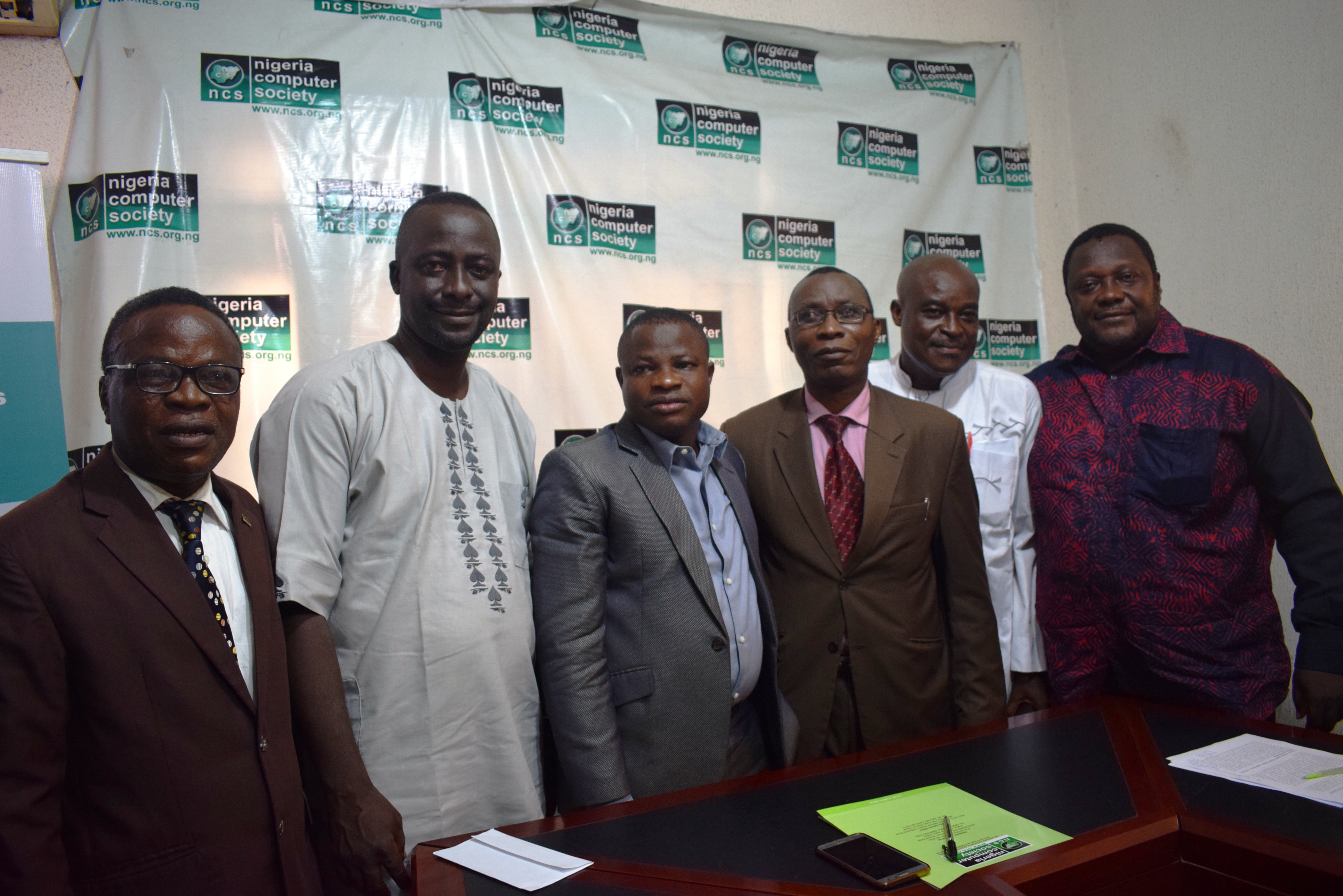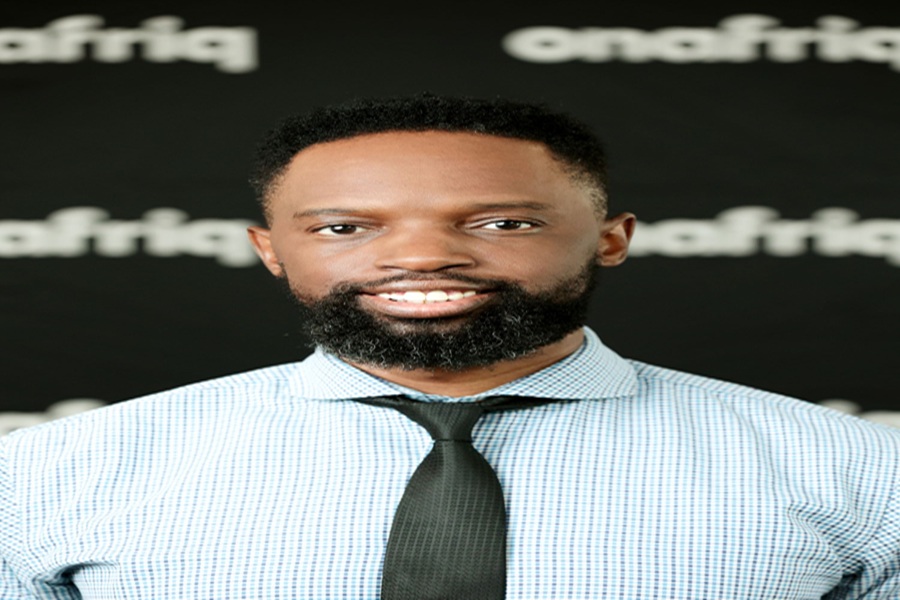Telecom
NCS Makes Case for Digital Inclusion, Announces Date for National Conference

Professor Adesola Aderounmu, President, Nigeria Computer Society (NCS) has underscored the need for Digital Inclusion in Nigeria.
Aderounmu, expressed this at a press conference to announce its 27th National Conference scheduled to hold at International Conference Centre University of Ibadan, Ibadan, Oyo State, on Tuesday 17th to Thursday 19th July, 2018, with the theme “Digital Inclusion: Opportunities, Challenges, and Strategies”.
Aderounmu stated, “In line with our emphasis on innovation we will be adopting various approaches through this most unique gathering of IT academia, industry and thought leaders to address challenges and highlight opportunities related to building a digital, prosperous and INCLUSIVE Nigeria that leverages on information technology to achieve Sustainable Development”.
According to him, “NCS is preparing for the best ever conference and has assembled an impressive line-up of leading researchers, entrepreneurs, educators, industry experts, thought leaders, international scholars and subject matter experts as speakers and resource persons to share their extensive knowledge and experience on the theme and sub themes.
“Their experiences and expert opinions will be of immense benefit to attendees.”
He noted that, the conference will focus on important issues related to the theme and sub themes such as: Poverty Eradication and Job Creation in the rural Economy. Internet and Broadband for All, e-agriculture, e-health, e-education for inclusion: Software and Local Content.
Other sub-themes include, Digital Gender Equality and the Empowerment of Women. Tech Startup, SME and Youth Enterpreneurship. E-Voting and Election Management. New Technologies for Economic Growth and Diversification. Digital Literacy, Knowledge Culture and Human Capital Development. Policy and Regulatory Framework. E-government, Citizen Engagement and Open Government. Fintech, e-Commerce and Financial Inclusion. Digital Empowerment of Persons with Disabilities. Innovative Collaboration and partnership. Cyber security: Awareness, Threat, Protection and Digital Rights. Innovation for the Elderly, Internally Displaced Persons and the Vulnerable.
Aderounmu said “the strategic and transformatory role of IT in the economy and society is well recognized.
“In the fast paced digital era, there is a need for strategic actions and innovative practices to ensure the nation is competitive, engaged and prosperous.
“The opportunities tech creates for employment generation, efficient and accountable governance, wealth creation and social development cannot be underestimated.
“NCS cautions that as we invest in technology, we must not widen existing divides in society.
“The sustainability of our efforts requires inclusion.
“The excluded, the vulnerable, the rural populace all need to be part of the digital revolution for Nigeria to fulfill its immense potential.
“For example, can we really have e-government if the majority of citizens lack access to digital infrastructure and fall short in terms of required digital skills?
“Through this conference, NCS and its members will again seize the initiative and play a major role setting the National Digital Inclusion Agenda.
“The multi-stakeholder forum will highlight challenges, opportunities and strategies.
“Networking avenues will be provided to share innovative ideas and research possibilities, examine existing interventions and create new initiatives and practical projects.”
According to Aderounmu, the conference comprises plenary, parallel and technical sessions, networking meetings, panel discussions and special focus forums.
He stated that highlights include: Plenary and Parallel Sessions, Technical Sessions, Seminars, Research Consortium, Induction of New Members, Youth Innovation and Entrepreneurship Platform, Exhibition and Products Launch, Social Media Masterclass, Mentor-Mentee forum, NITDA session, National IT Competitions, Fellows’ Forum and Annual General Meeting.
High profile dignitaries are expected to grace the event from government, private and educational sectors, as well as from the international and global IT environment, and they include President Mohammadu Buhari, Commander in Chief of the Armed forces of Nigeria as the Guest of Honour, while Minister of Communication, Barrister Adebayo Shittu and Director General of NITDA will be in attendance.
Aderounmu, expressed that the highlight of this year’s conference is the NCS President Award for Distinguished personalities in IT industry with outstanding Contribution to the growth of IT in Nigeria.
Notable dignitaries to be honoured and recognized are: Governor of Oyo State – Senator Abiola Ajimobi and His wife Mrs Florence Ajimobi; and Governor of Gombe State , Alh (Dr.) Ibrahim Hasan Dankwambo.
Confirmed Guest Speakers include Ms Funke Opeke, Founder and CEO of MainOne; Mr. Oluwafunminiyi Ajao, Special Adviser to the Oyo State Governor on ICT, among others.
Specifically, topics such as Artificial Intelligence, Blockchain, Fintech, Financial Inclusion, eGovernment, Broadband, Disruptive Technologies, Fourth Industrial Revolution and e-Voting will be covered as they relate to the conference theme.
“In line with the conference theme, NCS calls for practical action in all facets of the economy and society.
“We have always been committed to advance the interests of its esteemed members, the IT Industry and Profession and the Nation as a whole.
“#DigitalInclusion2018 offers amazing possibilities and opportunities.
“NCS is committed to Digital Inclusion and is certain that the outcomes will boost National Digital inclusion in all ramifications.
“It will provide the best and most appropriate answers to Nigeria’s IT Opportunities, Challenges and Strategies,” Aderounmu added.
NCS is the umbrella body of all IT professionals and organizations in Nigeria, with more than 20,000 members and major interest groups (ISPON, ITAN, ISPAN, NiWIIT, ITSSP, AITP, NITPCS). Also inclusive of one hundred thousand Student body (NACOSS).
Telecom
Onafriq, PAPSS Launch Wallet-Based Payments Pilot from Nigeria to Ghana

Onafriq Nigeria Payments Ltd, a CBN licenced payment service provider, partners with The Pan-African Payment and Settlement System (PAPSS) to pilot the continent’s first wallet-based outbound payments from Nigeria to Ghana – fully in Naira and instant, without relying on hard currency conversion, in partnership with Banks and Mobile Money Operators.

The pilot service, approved by the Central Bank of Nigeria (CBN), enables cross-border intra-Africa payments for individuals, merchants, and traders.
In particular, the service will benefit SMEs, the real engine of intra-African trade; all now have access to a faster, cheaper way to reach customers and suppliers across the border.
By reducing barriers to cross-border trade, the new service will allow these businesses to grow their addressable markets and activity. From the 1st of December, this service will be fully operational for a 6-month period.
Through the partnership with PAPSS, Onafriq is supporting the operationalization of the AfCFTA (Africa Continental Free Trade Area) mandate.
The mandate itself is driving tariff-free trade for the 54 member states of AfCFTA. Within the partnership itself, Onafriq provides the mobile money rails, with an ecosystem consisting of over 1 billion mobile wallets.
Meanwhile, PAPSS brings a network of over 160 commercial banks, representing an ecosystem of more than 400 million bank accounts across its 19 African countries of operation.
The two partners are essentially seamlessly connecting two worlds: mobile money and banking. As a consequence, intra-African trade transactions will take place more easily and opportunities will be created.
Currently, Africa is made up of bank and mobile-led markets, with siloes often inhibiting transactions between these economies. However, this partnership will remove these boundaries. With over one billion mobile wallets and 500 million bank wallets across Africa, this partnership will allow for cross-border collaboration at scale.
This partnership builds on Onafriq and PAPSS’ existing partnership for payments into Ghana, announced earlier this year.
Mxolisi Msutwana, Managing Director Anglophone West Africa said, “Our work with PAPSS shows what collaboration at scale can unlock—seamless, secure connections between banking systems and mobile money ecosystems.
“This is how we open bi-directional trade corridors, reduce costs for businesses, and give African enterprises the rails they need to trade with confidence in their own currencies. The vision is continental, but it starts with practical steps like this one.”
Ositadimma Ugwu, Chief Information Officer, PAPSS, added “Too often, African businesses and individuals see borders as roadblocks instead of opportunities. With this step, we’re challenging that mindset, giving Nigerians the ability to send value next door with the same ease as sending a text message.
“Our vision is simple: make Africa’s borders invisible to payments. This pilot makes that a reality, moving us closer to a continent where payments don’t pause at the border.”
This new Nigeria-to-Ghana outbound capability builds on the successful Ghana-to-Nigeria instant payments corridor launched earlier this year – further proof that Africa’s payments future is local, instant, and inclusive.
Telecom
MTN Powers 6,000 Young SMEs with Digital Skills in Economic Backbone Boost

MTN Foundation has kicked off the year with its five-week Digital Skills Training programme, upskilling 6,000 young Nigerians. The programme, which is in its fifth week commenced in January 2026.

MTN
The seventh phase of the project is focused on supporting Nigeria’s microbusiness to embrace digital transformation, at a time when SMEs remain the backbone of the Nigerian economy.
According to the National Bureau of Statistics (NBS), SMEs account for over 90 per cent of businesses in Nigeria and employ a significant portion of the country’s workforce, underscoring the importance of initiatives that strengthen their productivity and sustainability.
Following a one-month call for applications in September 2025, which saw almost 64,000 entries from Nigerians between the ages of 18 and 35, the 6,000 selected microbusiness owners have embarked on a five-week training that will end in February 2026.
The virtual training programme began with a general onboarding session that brought together participants across four business tracks and set the foundation for a four-week programme focused on practical digital strategies for business growth.
Microbusiness owners from sectors including circular economy, agriculture, food services, fashion, retail, logistics, beauty, and printing attended the training.
At the heart of the training is the principle that digital transformation has the capacity to enable small businesses scale and become more efficient. Participants were encouraged to start small, digitise repetitive tasks, and scale gradually using the Kaizen approach of continuous improvement.
This mindset allows them to see technology as a practical enabler of growth rather than a barrier. As the training progressed, the participants also learned about telesales and cybersecurity.
Speaking on the importance of the initiative, Odunayo Sanya, Executive Director of the MTN Foundation, said the programme is designed to equip young microbusiness owners with skills that directly address real business challenges.
“Small businesses are the backbone of our economy, and enabling young people adopt simple digital tools can make a real difference in productivity, sustainability, and long-term growth,” she said.
She also mentioned that the top-performing 600 participants will receive equipment grants of N600,000 each at the end of the programme.
Participants will continue to access learning materials and session recordings for the 5-week course, ensuring that digital adoption extends beyond the classroom. By combining practical guidance, relatable case studies, and continued support, the programme reinforces the message that digital growth for SMEs is achievable leveraging on technology.
Telecom
Airtel Nigeria Commits to Boosting Nigeria’s Digital Infrastructure

Airtel Nigeria has reaffirmed its long-term commitment to strengthening Nigeria’s digital infrastructure and data access to bridge gaps in connectivity and unlock new opportunities in the country.

The company restated this commitment during a recent high-level inspection tour of the Nxtra Data Centre that is being developed through Nxtra by Airtel Africa at Eko Atlantic, Lagos, the highly rated smart city with ambition to become the Data Centre hub of Nigeria.
The inspection tour was led by the Chief Executive Officer of Airtel Nigeria, Dinesh Balsingh and the Chief Executive Officer of Nxtra by Airtel Africa, Yashnath Issur, with the esteemed chairman of Eko Atlantic Mr. Gabbi Massoud, the CEO of the lead Engineering firm Design Group Limited, Mr. Bayo Odunlami and tech journalists.
The Nxtra Data Centre went through a stringent design validation process and cleared the approval to proceed construction from Eko Atlantic.
Commenting on the developments, Mr Issur said the site visit was a milestone marker and an indication of the company’s commitment to delivering the world-class digital facility on time and ensure that, ultimately, the investments deliver reliable, secure, world-class services for Nigeria and the rest of the continent.
“This Nxtra Data Centre in Lagos represents a critical part of our long-term vision for Nigeria’s digital ecosystem. Today’s visit allows us to review progress, engage our stakeholders, and ensure that our infrastructure investments continue to meet global standards and local needs.
“This data centre will deliver critical high multi megawatt capacity in line with hyperscale customers and enable high density environment. We are putting the infra to bring the cloud to Nigeria,” he said.
The data centre, set to be the largest in Nigeria, is being established to deliver hyperscale and edge facilities across key African markets. With a load of 38 Megawatts, the Lagos facility is expected to serve as a major hub for data hosting, cloud services, content distribution, artificial intelligence, and enterprise solutions in West Africa.
In his remarks, Mr Balsingh reiterated that the data centre was progressing steadily towards the previously announced 2028 go live date.
“Since the announcement of this project, our focus has been on building a world-class facility that supports Africa’s digital transformation agenda. We are encouraged by the progress recorded so far and remain committed to delivering a secure, energy-efficient, and future-ready data centre for Nigeria,” he said.
During the tour, stakeholders were ushered through key sections of the site, including piling zones, where required structural requirements have been tested. Technical teams provided briefings on infrastructure design, security architecture, redundancy systems, and sustainability measures being implemented to ensure reliability and operational excellence.
Strategically located close to major fibre routes and undersea cable landing stations, the Eko Atlantic data centre is designed to enhance Nigeria’s data sovereignty, reduce latency, and improve access to reliable digital services for private and enterprise customers, significantly boosting the country’s data hosting capacity and supporting emerging technologies such as artificial intelligence and cloud computing.
Mr. Massoud noted that the inspection tour underscored the city’s dedication to infrastructure of global relevance.
“Eko Atlantic as a city with high quality infrastructure will contribute positively to boost the economy of Nigeria and is a perfect place for the development of the digital infrastructure of Nigeria. The Nxtra data centre reflects the calibre of projects we seek to attract — long-term, technology-driven investments built to the highest global standards.
Today’s visit affirms the rigour of the planning and execution process by Nxtra, and the commitment of Eko Atlantic to facilitate and promote the Nigeria’s evolving digital ecosystem,” he said.
Through this ongoing investment, Airtel Nigeria and Nxtra continue to demonstrate their commitment to building infrastructure that enables innovation, supports economic development, and accelerates Nigeria’s digital transformation.
Nxtra by Airtel is developing a network of hyperscale data centres across the continent. Besides Lagos, construction of a new data centre has also commenced in Nairobi, Kenya and the Democratic Republic of Congo.

 Telecom2 days ago
Telecom2 days agoTelecom Operators Invest Over $1Bn on 2,850 New Sites in 2025 – NCC

 E-Financial2 days ago
E-Financial2 days agoIf Capital is the Answer, What Exactly is the Problem with First Holdco

 E-Financial2 days ago
E-Financial2 days agoAmaanah Finance to Unveils Non-Interest Banking Services Today

 News2 days ago
News2 days agoNSCDC Hands over Fake Crypto Currency Trader to EFCC

 General News2 days ago
General News2 days agoFirst Trustees to Host 8th Islamic Estate Planning Clinic in Abuja

 News2 days ago
News2 days agoAlakija’s Flourish Africa Provides N300m Grants for Women Entrepreneurs

 E-Financial1 day ago
E-Financial1 day agoAccidental Billionaire Opts for Jail Instead of Returning Money Credited Him by Mistake

 General News2 days ago
General News2 days agoSecurity Forces Probe Use of Drones by Terrorists



























